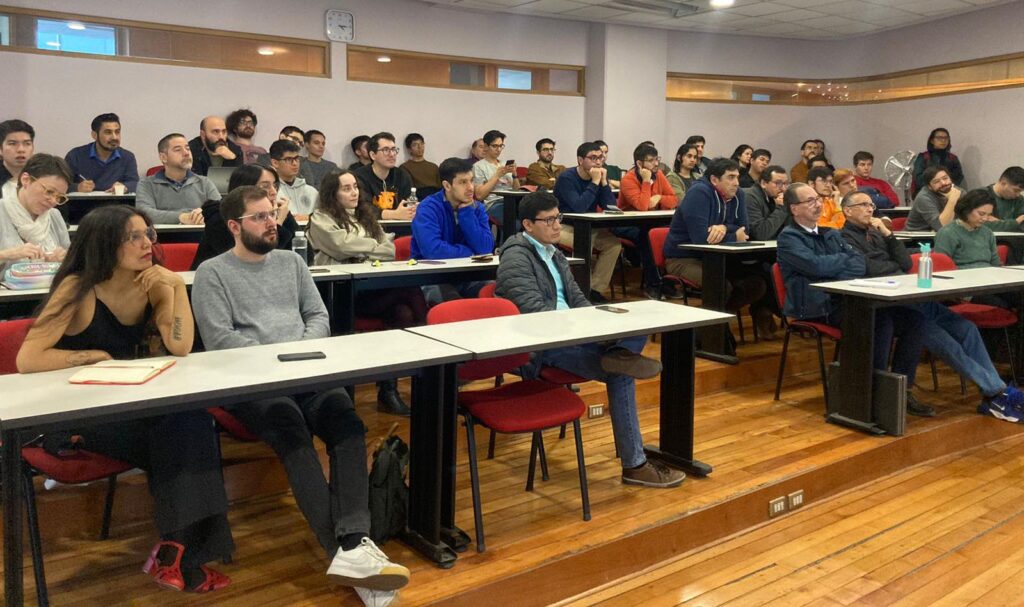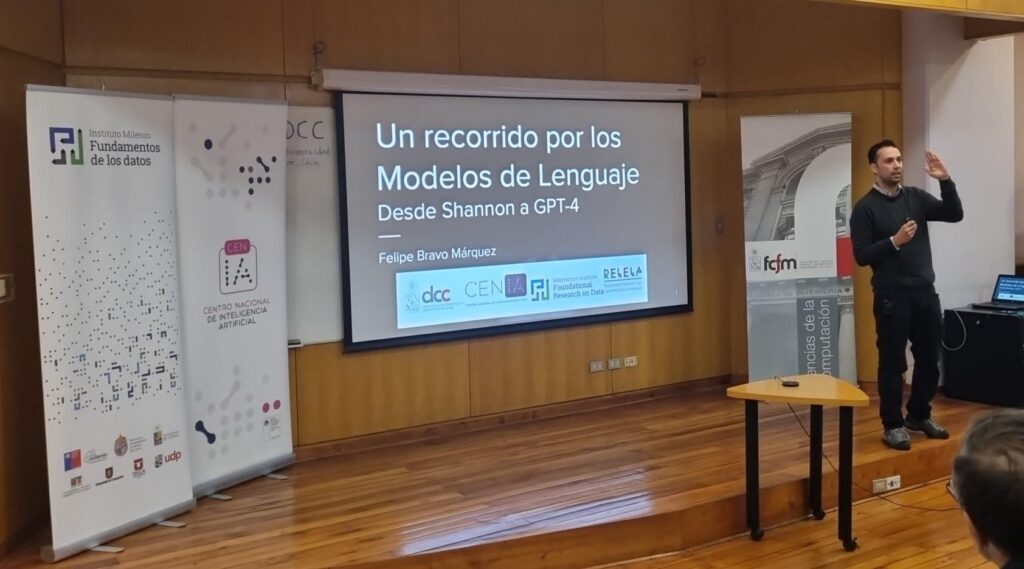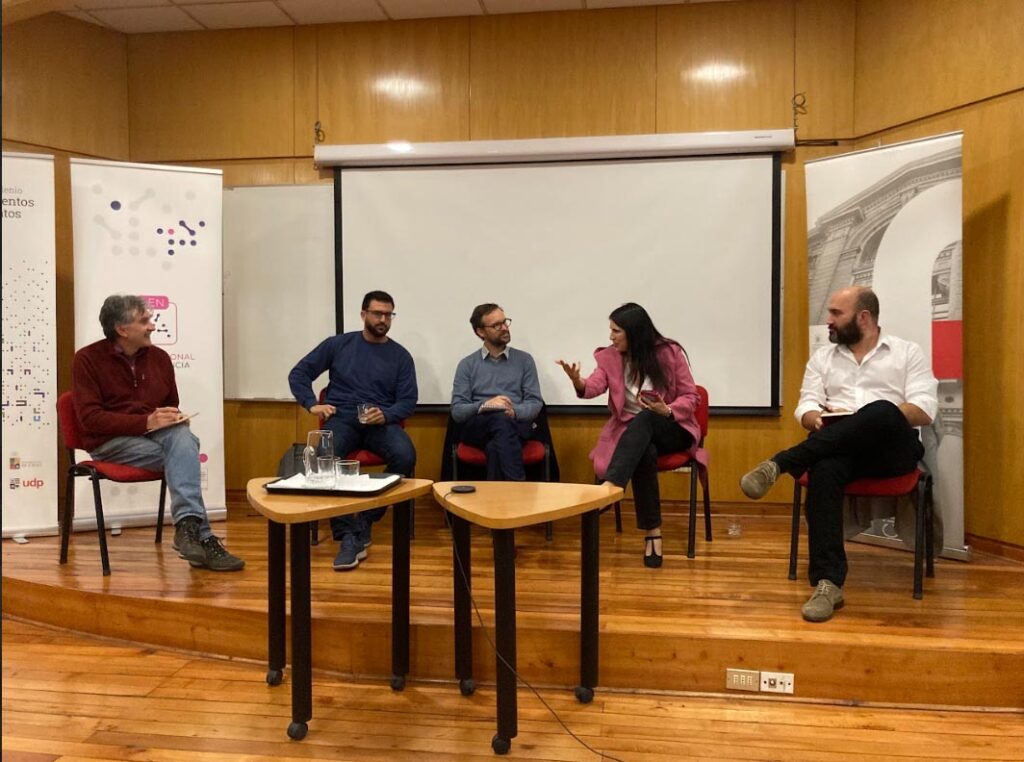
Successful series of lectures on ChatGPT
"The (Im)possibilities of Language Models" was the name of the lecture series that took place at the Department of Computer Science (DCC) during the month of May.
With the aim of providing a broad and critical overview of the development and possibilities of language models, specifically in relation to the latest technological advancements in the field of artificial intelligence and the significant impact generated by ChatGPT, during the month of May, the research group “Representations for Learning and Language” (ReLeLa) from the Department of Computer Science at the University of Chile (DCC U. Chile), in collaboration with the Millennium Institute for Foundations of Data (IMFD) and the Center for Artificial Intelligence (CENIA), organized a lecture series titled “The (Im)possibilities of Language Models,” which featured various talks and a panel discussion.
 First lecture
First lecture
The events held in this lecture series were as follows: “Can ChatGPT Conquer the World? Human Language vs. Machine Language” by Jorge Ortiz, graduate student at DCC U. Chile and researcher at IMFD; “A Journey through Language Models: From Shannon to GPT-4” by Felipe Bravo-Márquez, faculty member at DCC U. Chile and researcher at IMFD and CENIA; “Current Ethical Challenges in Light of the Socio-Technological Revolution of GPT-3 and 4” by Gabriela Arriagada, researcher at Pontifical Catholic University of Chile (UC) and CENIA; “ChatGPT in Industry: Possibilities and Projections” by Jorge Pérez (CERO.AI) and Manuel Peña (Fintual); and the Panel Discussion: “Scope and Limits of Language Models” moderated by Claudio Gutiérrez, faculty member at DCC U. Chile and researcher at IMFD, featuring the participation of Cristián Buc (CENIA), Magdalena Saldaña, faculty member at the Faculty of Communications of Pontifical Catholic University of Chile and researcher at IMFD, Martín Cáceres, Director of Innovation at the Ministry of Education of Chile, and Felipe Tobar, from the Data and Artificial Intelligence Initiative (IDIA UChile) and the Center for Mathematical Modeling at the University of Chile (CMM).
 Felipe Bravo Márquez
Felipe Bravo Márquez
For Felipe Bravo-Márquez, faculty member at DCC U. Chile and researcher at IMFD, this lecture series was very beneficial. “We were able to engage with the community, and we had a lot of attendance from industry professionals, students, researchers from various centers, and faculties. So, in terms of impact on the field, the results were highly valuable. It is also important to highlight that we were able to position DCC U. Chile at the center of a broad discussion on the impact of this technology. It is good to demonstrate that we have strong groups in the field, such as RELELA, a prominent group in Deep Learning,” he noted.
Regarding future projections on this topic, Felipe emphasized the need to analyze various aspects, such as centrality and ethics, among others. “We must also consider how these technologies affect the way software is developed and applications are created. Additionally, it is important to examine the issue of agents, programs that utilize these language modules to solve complex tasks, such as scheduling a doctor’s appointment or purchasing tickets,” he added.
 Claudio Gutiérrez, Cristián Buc, Martín Cáceres, Magdalena Saldaña, and Felipe Tobar.
Claudio Gutiérrez, Cristián Buc, Martín Cáceres, Magdalena Saldaña, and Felipe Tobar.
To conclude, the professor from DCC stated that they will continue organizing events like this, as there are still pending topics to address, such as the legal aspect. “I believe that the panel participants, Felipe Tobar, Christian Buc in neuroscience, Martín Cáceres in education, and Magdalena Saldaña in communications, are individuals who could have easily given a full lecture on their respective areas. So, there are many topics to continue discussing and analyzing,” he concluded.
You can watch all the talks from this lecture series at the following link.
—